The Brave Journey of Women Seafarers
Throughout history, we have always seen shipping as a male-dominated industry. Over the last two decades, however, women have been breaking stereotypes and foraying into the maritime world, creating an identity for themselves.
These are the women who have refused to be bound by the societal norms and charted an independent course. Strong and determined, they have fearlessly sailed beyond the horizon and created history!
The voyage so far has not been smooth. They have had to weather tough winds, brave squalls, and contend with caustic waters, but they have triumphed over all these hurdles by dint of sheer determination.
Today, on the occasion of the International Women’s Day, SHM Shipcare spoke to some of the most experienced Lady Officers and Chief Engineers as well as the new generation of cadets in the maritime industry in India about their inspirations, challenges, and experiences in this journey.
The women interviewed include Capt. Radhika Menon,the first woman in the world to be honoured by the IMO with the Award for Exceptional Bravery at Sea, Ms. SuneetiBala, India’s first Lady Chief Engineer, and Ms. Sharvani Mishra, the three founders of the International Women Seafarers Foundation; Chief Engineer Rupali Joshi, 3rd Engineer Bhagyashree Ogale, Ms. Reshma Nilofer, the first Marine Pilot in India, and Ms. Poonam Devangan, former seafarer and recipient of the Varuna Award.
Humble Beginnings
The start of the road was small for women in the shipping industry, with a common love for the sea and ships driving them forward. Some of them were encouraged by their parents who were already in the field, but most were drawn to it because of its novelty and the desire to do something out of the ordinary.
Says Ms. Devangan, “Doing something interesting and different has always excited me. I wanted to enter the Indian Navy, so opting for marine engineering was a natural choice.”
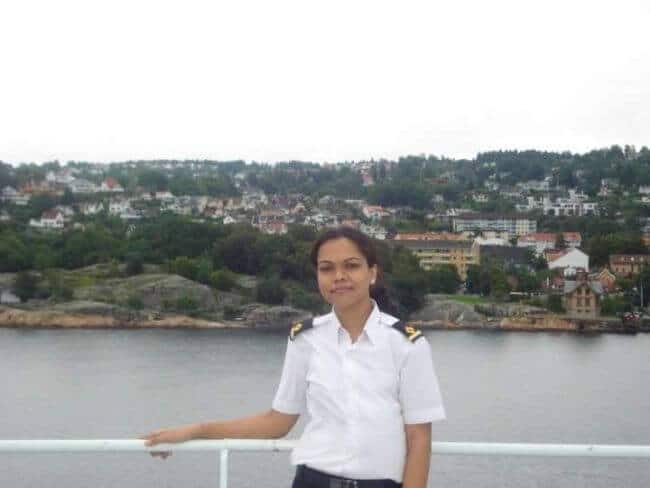
Quite a few officers also chose the maritime industry incidentally. The lack of a proper channel that provides information about the kind of career opportunities the field offers, meant that they had to forge a path for themselves, overcoming challenges at every level.
Overcoming Challenges Along the Way
The principal challenge that all women seafarers had to face is the conservative mentality of the society. We believe that gender discrimination is in its last throes but in shipping, unfortunately, that is far from the case.
For these women, the choice of working in the maritime sector was often met by criticism, discouragement, and sometimes downright disdain. However, they successfully triumphed over these mentalities by constantly motivating themselves to prove that they were no less than their male counterparts.
In colleges, they were often seen as somewhat of an oddity. Being hardly one or two candidates in a class of thirty, the situation sometimes bordered on tragi-comic. On one hand, there was a curiosity to see who these plucky girls were, but on the other hand, they were constantly judged at every step along the way.
Related Reading: A Woman Seafarer Describes The Challenges She Faces On Board Ships
During this phase, there were both good and bad experiences. In the initial stages, most of the shipping companies had trouble with the idea of hiring female recruits. This meant that girl cadets were often overlooked, irrespective of their capabilities.
Ms. Sharvani Mishra recounted her own experience during the time of engineering placements. Despite being one of the top five students in her batch, she and her fellow female classmate were never called to company interviews. On talking to their College Principal, they realized that all the companies that had arrived were not even ready to interview female candidates because they were sure they would not be good enough!
The unwavering faith of her teachers, peers and her own confidence in her skills helped her through this. She later successfully sailed with The Great Eastern Shipping Co. Ltd. Her stellar performance encouraged shipping companies to start recruiting female candidates in the upcoming years.
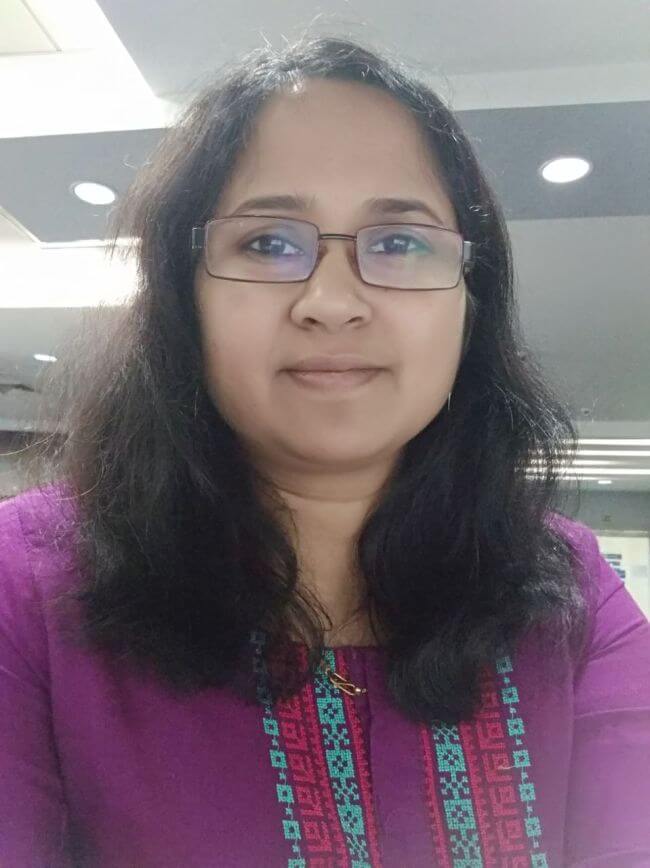
Over time, the industry has gradually come to accept the presence and the value of women in the maritime field and is becoming open-minded about employing them. Students and teachers alike respect the competency of women and are ready to offer advice and help as necessary.
The Shipping Scenario
Post college, the transition to a sailor’s life can be a little overwhelming. However, these women underwent rigorous physical and mental training to vanquish all hurdles that came their way.
Chief Engineer Rupali Joshi told us about the long hours she had to pull during her year-long training at MERI, Mumbai. However, all those then seemingly pointless tasks taught her numerous life lessons which have been useful in many instances through her career. There was an instance when the cargo ship she was plying stopped in a piracy-prone area. Understanding the gravity of the situation, she kept her cool and rapidly directed all the maintenance procedures that had them sailing out of danger in no time.
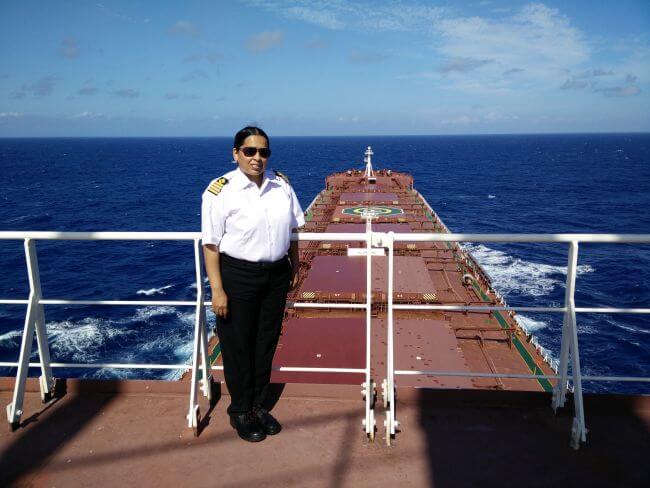
As a woman officer, you need tremendous mental strength to survive onboard ships. The inherent prejudice notwithstanding, there are many other obstacles one has to face and overcome, to prove yourself. The fundamental problem is the conventional mentality.
Capt. Radhika says, “People on ships always doubt a girl’s capability to perform a task that has been traditionally been done by a man, only because it has always been done by a man!”
“The only way to overcome this prejudice is by proving your mettle and keeping a calm and cool head while performing your tasks. Doing the jobs assigned to you with 100% dedication and perseverance goes a long way in convincing your peers that you know your subject and are serious about your responsibilities,” says Chief Engineer Rupali.
Safety Onboard Ships
One of the most common questions people ask Ms. Reshma Nilofer, the first Lady Marine Pilot in India, is how safe the sea is for women. “It is a common belief that one needs to know swimming and what not to be safe on the ocean”, she says. “However, the current safety regulations and the safety equipment available through dependable manufacturers have ensured that safety is no longer an issue.”
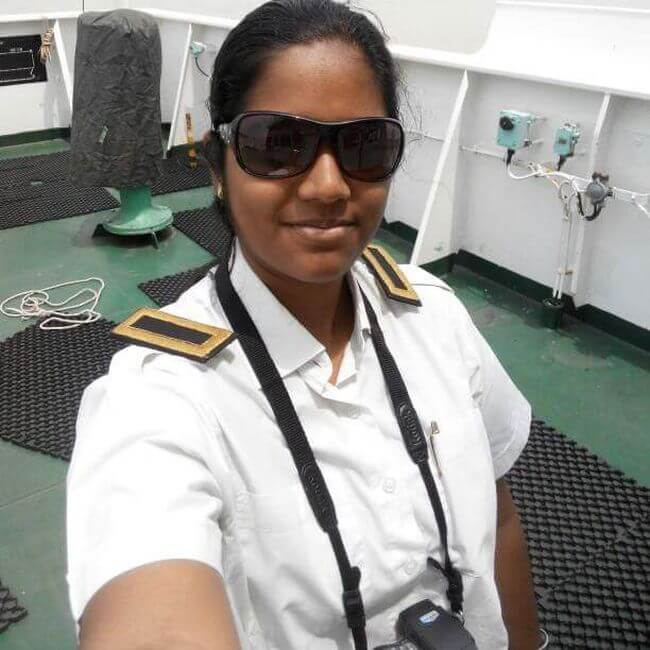
Capt. Radhika demonstrated that not only can women be competent when it comes to ship safety, but can rather go out of the way and take the decisions required to save lives at sea as well. Her daring rescue of seven fishermen earned her the International Award for Exceptional Bravery at Sea from the IMO, making her the first woman in the world to do so!
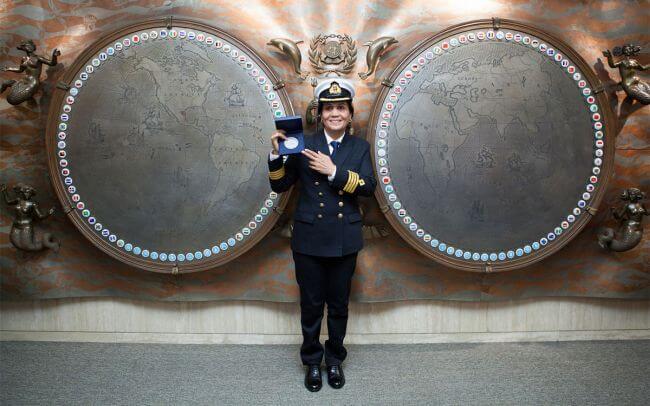
Technology and globalisation have made a marked difference in the tools for communication, though safety equipment is pretty much the same. Automation and the implementation of technology have led to increased alertness and more timely checks. Safety equipment manufacturers like SHM Shipcare have introduced quality personal safety devices that can be used onboard ships. A new software is making it easier to keep track of systems and receive warnings well in time to take preventive measures.
“The one thing that can be done to improve safety on ships is to make the equipment fool-proof”, says Ms. Reshma. “Making people more acquainted with handling and using safety equipment and ensuring that they follow all the do’s and don’ts is a must.”
Given these factors, it is evident that shipping is emerging as a strong career option for young women.
Related Reading: 7 Main Reasons There Are Fewer Female Seafarers In The Maritime Industry
Shipping as a Career for Young Women
Over the past 15 years, shipping has become a potential career option for girls, thanks to the ground-breaking work of these women. There are several different opportunities available for women in the sector today in sailing, safety maintenance, ship engineering, logistics, supply chain management, as technical superintendents, radio officers, surveyors, and many more.
Even after the mandatory sailing duration is over, there a number of ways to stay connected with the marine industry, at port and companies, through onshore jobs.
However, the lack of proper guidance about these opportunities and the various ways in which girls can avail of them leads to lesser number of recruits into the stream. This has been remedied to some extent by the International Women Seafarers Foundation (IWSF), which has been founded by Capt. RadhikaMenon, Ms. SuneetiBala, and Ms. Sharvani Mishra.
Related Reading: 8 Career Options For Women Seafarers After Sailing At Sea
Role of the IWSF
The IWSF was created to provide a common platform to bring together all the women in the marine community. The idea is to connect all women seafarers so that the younger generations can benefit from the experience of their seniors and the senior officers are aware of the challenges being faced by the newer recruits.
At the organizational level, the aim of the IWSF is to guide and mentor young women sailors to make their foray into shipping easier. It also works to create awareness within the government and shipping companies about the fundamental policy changes that need to include clauses for women.
There are major gaps between the policies for women and men in shipping at present. As a matter of fact, quite a few companies do not even have provisions for women in the policies. Ms. Bala mentioned an instance where a renowned shipping company did not have a clause providing maternity leave for women. In addition, post their maternity break, women are expected to join at a lower rank than their existing designation. Men, on the other hand, can resume their responsibilities at the same rank after an extended break.
In this context, Bhagyashree Ogale lauds the husbands of women seafarers who support their wives in spite of having a family to look after. She says, “To have a family life, you may have to quit after becoming chief engineer. It is a personal choice though; some women have husbands who have taken a step backwards in their careers to promote the wife’s career.”
The IWSF intends to stand as a recognized entity that can assist the companies to design and implement policies for gender sensitization.
Ms. Suneeti Bala says, “The organization intends to be a primary source of information for young girls and their parents who are desirous of joining the maritime world. There are a lot of rumour-based misconceptions in the minds of the people which prevent girls from venturing into these waters. The IWSF can provide quality counselling and genuine guidance to these aspiring seafarers.”
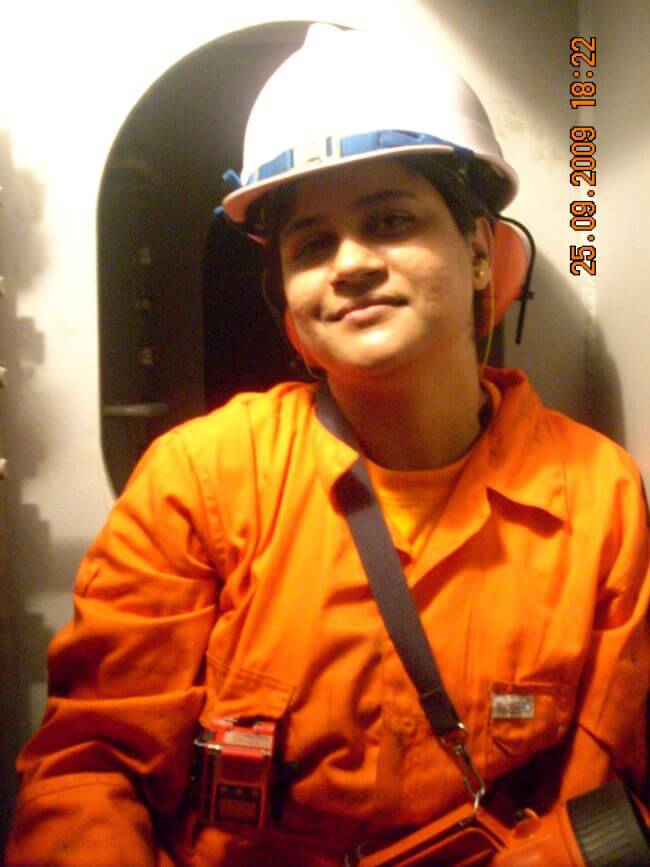
Bhagyashree, a 3rd Engineer and a seafarer herself, stressed on the positive role of IWSF in the welfare of a woman seafarer. She said, “IWSF plays a crucial role to address problems in the field. It is difficult for one person to bring about a change but the voice of an entity and a group of fellow women seafarers is impactful. IWSF provides a good platform to discuss problems and look for genuine, realistic solutions.”
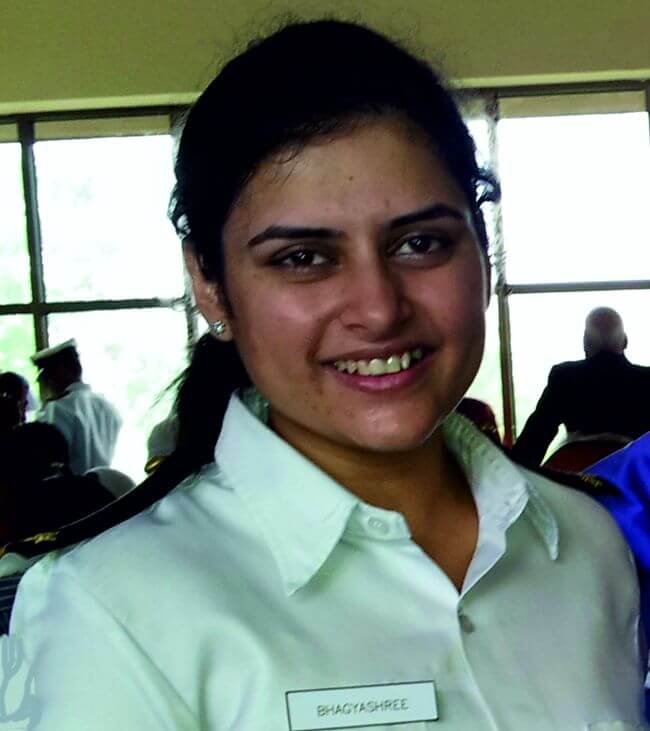
The Road Ahead
There is tremendous scope for women in shipping, provided the field is given the right exposure. Talking to the women stalwarts of Indian shipping, we see that the future for women in shipping is a bright one.
All across the world, women have ventured into the maritime field. Various organizations like the IWSF and WISTA are coming forward to educate and encourage women to prepare themselves for a future in seafaring and assist them in any problems they might face.
Entering the maritime world is no longer a barrier; surviving in it is a challenge. “Choose your career based on passion, not gender”, advises Ms. Devangan. These women have proved that gender is not an issue when you do your work well. As Ms. Joshi puts it, “The sea does not distinguish between a boy and a girl. Stick to your job, do your work properly, and it can be one of the best careers in the world.”
Amongst all this, it is important to stay humble and self-aware, Ms. Reshma says. “Women can be very sensitive and compassionate, but this cannot take us through life. We need to be tough emotionally. We have the freedom to excel and prove ourselves in every field. The only way to do this is to keep becoming a better version of yourself.”
A salute to these women of our shipping industry! We sincerely congratulate their efforts and hope to soon see a new generation of women seafarers following in their footsteps!
This series of interviews was conducted by SHM Shipcare in association with Marine Insight. SHM Shipcare is one of the leading manufacturers of FRP boats, along with supplying and servicing safety equipment for ships in India.
Disclaimer :
The information contained in this website is for general information purposes only. While we endeavour to keep the information up to date and correct, we make no representations or warranties of any kind, express or implied, about the completeness, accuracy, reliability, suitability or availability with respect to the website or the information, products, services, or related graphics contained on the website for any purpose. Any reliance you place on such information is therefore strictly at your own risk.
In no event will we be liable for any loss or damage including without limitation, indirect or consequential loss or damage, or any loss or damage whatsoever arising from loss of data or profits arising out of, or in connection with, the use of this website.

About Author
Raunek Kantharia is a marine engineer turned maritime writer and entrepreneur. After a brief stint at the sea, he founded Marine Insight in 2010. Apart from managing Marine Insight, he also writes for a number of maritime magazines and websites.
Do you have info to share with us ? Suggest a correction
Disclaimer :
The information contained in this website is for general information purposes only. While we endeavour to keep the information up to date and correct, we make no representations or warranties of any kind, express or implied, about the completeness, accuracy, reliability, suitability or availability with respect to the website or the information, products, services, or related graphics contained on the website for any purpose. Any reliance you place on such information is therefore strictly at your own risk.
In no event will we be liable for any loss or damage including without limitation, indirect or consequential loss or damage, or any loss or damage whatsoever arising from loss of data or profits arising out of, or in connection with, the use of this website.
Related Posts
Subscribe To Our Newsletters
By subscribing, you agree to our Privacy Policy and may receive occasional deal communications; you can unsubscribe anytime.




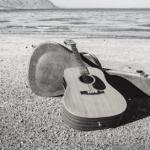
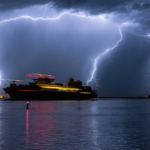

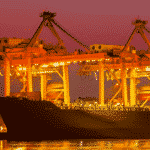


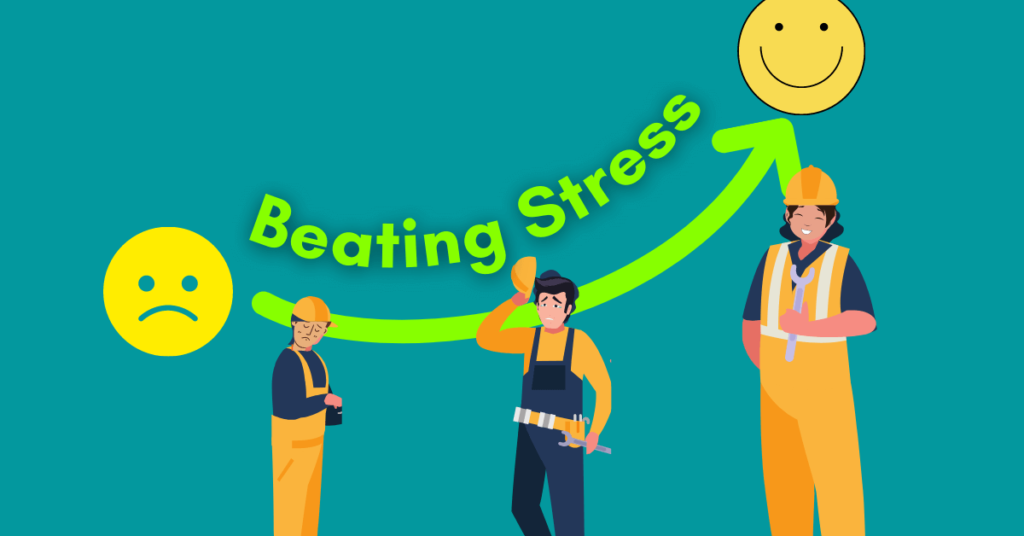
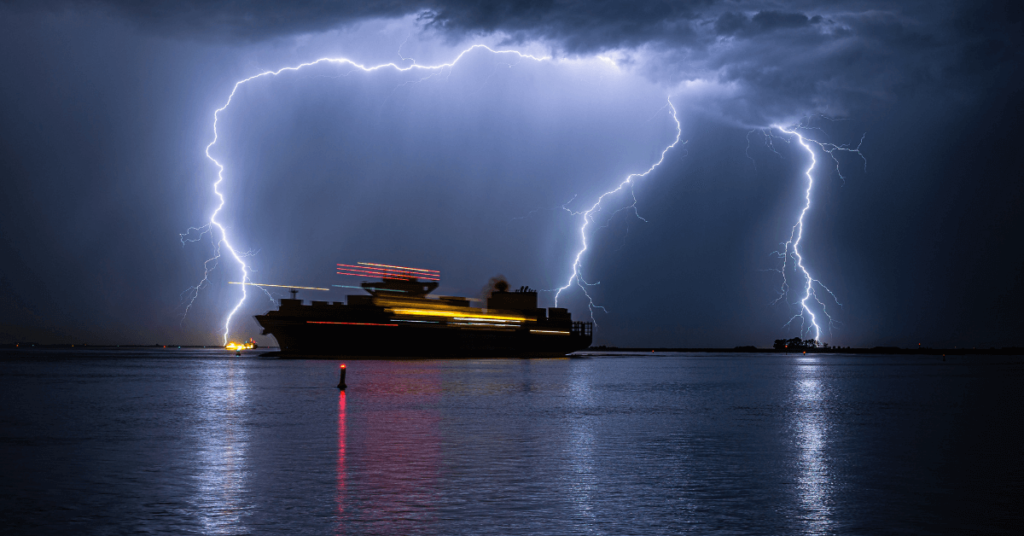
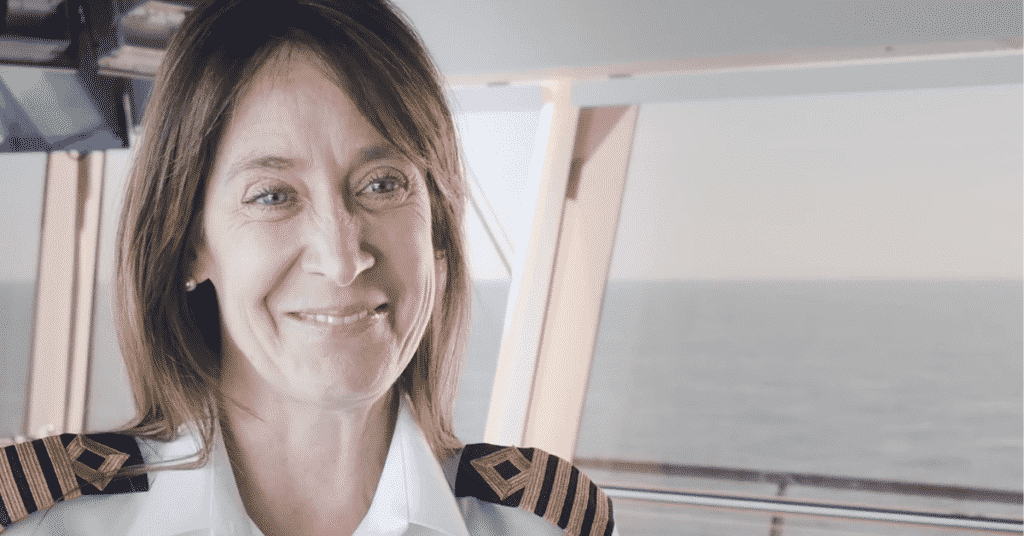
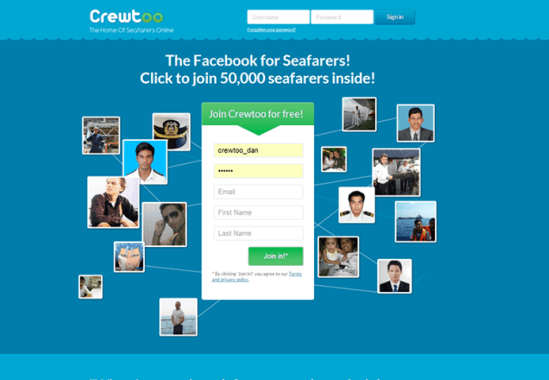


is there anything that girls have recruitment of 10years only??? if so then what after the end of there services??
There is no such time-bound deadline for females.